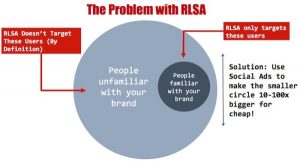When you’ve been fired from a job, facing an employment interview can be extremely nerve-wracking. After all, you don’t want to lie, but it’s also difficult to spin the termination positively, given the connotation that your behavior or performance was lacking. These responses to the infamous “Why were you fired?” question can let you stay honest and send a good vibe to your interviewer.
Option 1:
“You know, based on my manager’s comments and my performance reviews, I really don’t think my skills really matched what my employer needed. But what your company is looking for seems to fit them much better. Would your business find my skill in [area] useful in addition to my competencies in [other area(s)]?”
Why it works: This response implies that you’re familiar with and have really thought about what your boss said to you before or at your termination. It shows that you are able to analyze what a business is after and that you can think critically about what you can offer. The final part of the response gives the impression that you can go above and beyond the employer’s expectations.
Option 2:
“When I took my last job, I didn’t really think about what I would want going forward. I was worried more about just having an income to pay my bills, and I made mistakes because of it. But now I have a better sense of where I want to go, and I very much prefer the kind of [open, innovative, structured, supportive] environment your company offers.”
Why it works: With this answer, you take full responsibility for the errors you made at your old company. You show you’ve matured in saying that you’ve gained direction and understand your goals and desires better. This profession of growth immediately connects to what it’s like at the new business, implying that you can reach your new objectives through your work there. Furthermore, you show some familiarity with the way the company operates, revealing you’ve done your homework.
Option 3:
“My getting fired really caught me off guard, to be honest. My manager simply said it was ‘for cause,’ but I’ve since thought about it, and I think it was [x] that was the issue. I’ve been working hard on that area and would love the opportunity to prove to you what I’ve learned.”
Why it works: This option is appropriate only if your boss really did let you go out of the blue without a reason. It’s effective, however, because it says you’ve gone back and reexamined for yourself what happened. It communicates that you were able to analyze at least somewhat objectively and weren’t afraid to identify your shortcomings. The response further shows that you took action after the analysis, that you didn’t just leave the fault to fester and continue to hold you back. It concludes gracefully with a subtle but confident push toward getting approved to work.
Option 4:
“I’ll admit it here, I wasn’t a good fit for the position. My manager needed someone who was really proficient in [subject/technology], and I’m nowhere close to being an expert in that. I’m much stronger in [subject/technology]. In hindsight, I’m grateful my boss made the decision he did, because both of us have had the chance to move forward and develop now.”
Why it works: With this response, you offer the interviewer a more well-rounded portrait of yourself, explaining both strengths and weaknesses. You also show both humility and honesty, both of which most people view as positive character traits. Instead of pointing a finger at your boss and blaming him, you treat him with respect. With the ending, you show that you value your old manager’s ability to still operate well, simultaneously professing that you’ve achieved personal growth, too.
The Path Forward
Getting asked why you were fired is always awkward, but it’s still an inquiry you can answer with truth and dignity. Any of these answers can work, depending on the circumstances surrounding your termination. You can rehearse your response ahead of time so you feel comfortable as you deliver it and sound more natural. They should help you get past this line of questioning and deeper into what really matters — the new position on the table and what you can offer the company in question.
Business & Finance Articles on Business 2 Community
(7)






